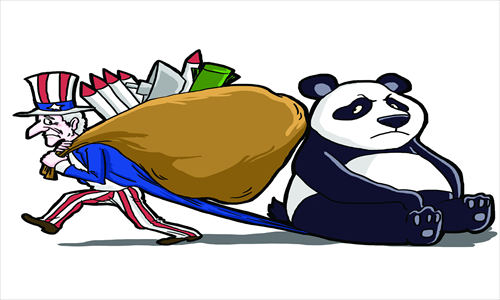Arms sales add fuel to regional security dilemma

The issue of US arms sales to Taiwan remains a source of tension in the US-China relationship even today, 30 years since the third and final joint communiqué between China and the US.
The Chinese mainland has, historically, strongly protested against US arms sales to Taiwan. However, while the Chinese mainland sees US arms sales as a violation of the three China-US joint communiqués, from the US perspective, arms sales to Taiwan are guaranteed by the 1979 Taiwan Relations Act.
Until that law changes, Beijing's anger will have little impact. The Chinese mainland's anger over arms sales to Taiwan is now seen as routine and predictable by US policymakers.
In fact, they see the Chinese mainland's retaliatory actions, such as canceling military-to-military exchanges, as hurting China more than they hurt the US.
Nowadays, there is a high degree of interdependence between China and the US. However, interdependence plays a very limited role in regard to US arms sales to Taiwan.
The arms sales generally have a negative impact on Chinese mainland public opinion toward the US, but they do not change the dynamic of the overall bilateral relationship, especially when it comes to flows of trade and investment.
Washington recognizes the importance of the US-China bilateral relationship and it understands how the Chinese mainland views arms sales to Taiwan.
However, most US policymakers believe that the mainland is not willing or able to impose high costs on the US in response to their arms sales to Taiwan.
"Abandoning Taiwan" also carries reputational costs that most US politicians are not willing to take. As China's economy grows, the reputational costs associated with "sacrificing" Taiwan to placate a more powerful China will only increase.
The US is not constrained by its economic ties to the Chinese mainland when it comes to arms sales. Beijing has much more leverage vis-à-vis Taiwan as a result of interdependence, and the engagement strategy pursued by Chinese leadership has the potential to reduce strategic mistrust and change Taiwan's preferences over the long term.
It is important to recognize that selling more weapons to Taiwan is not a way to achieve US goals in Asia despite growing fiscal constraints at home. Instead, the US policy of arms sales to Taiwan merely exacerbates the security dilemma with the Chinese mainland, where actions taken by one side to ensure security actually make both sides less secure.
The US policy of arms sales to Taiwan endangers the long-term stability of the region, because the Chinese mainland has no choice but to respond with additional military buildup. Therefore, paradoxically, US arms sales to Taiwan may make the US less secure by contributing to a destabilizing arms race with the Chinese mainland.
As US policymakers rebalance to Asia, they should remember the content of the three joint communiqués. China's economic growth and consequent power cannot be wished away or ignored. They are realities that the US will continue to live with.
Furthermore, since the establishment of diplomatic relations, the US and China share many common interests and are both committed to peace in Asia.
US foreign policy will determine whether or not China becomes a hostile power. Ending arms sales to Taiwan will allow the US to make progress toward this objective.
However, until the high levels of strategic mistrust between the US and China dissipate, it is very difficult to see the policy of Taiwan arms sales changing.
The article was compiled by Global Times reporter Shu Meng, based on an interview with Han Fei, a political analyst based in Washington DC, US. shumeng@globaltimes.com.cn